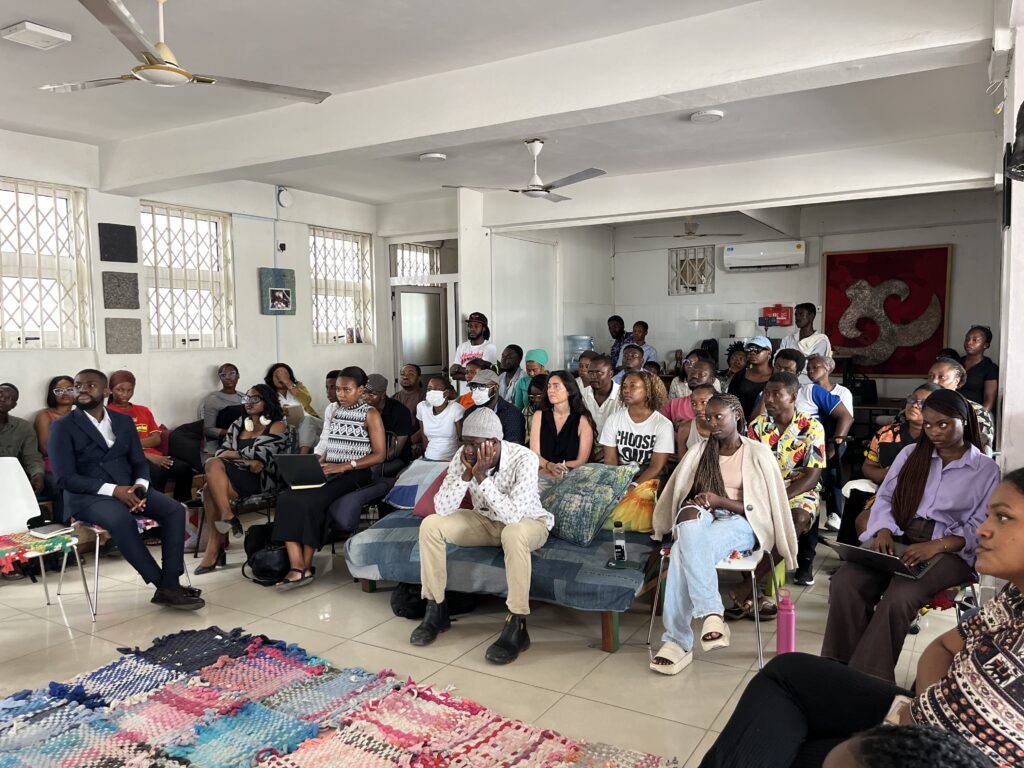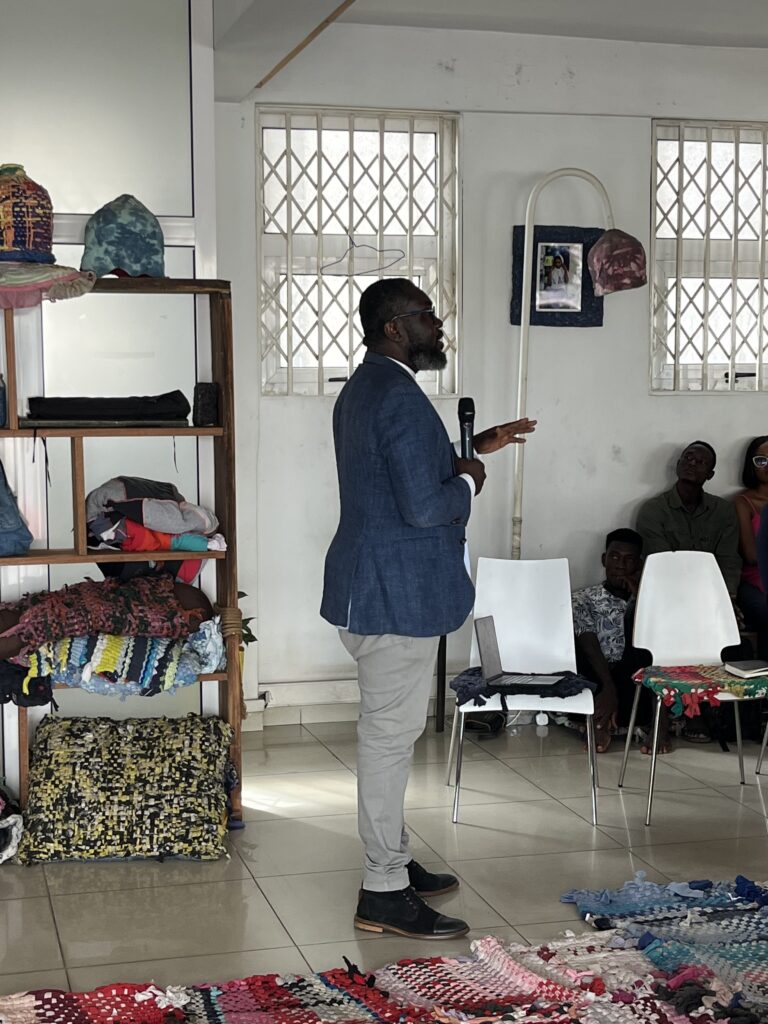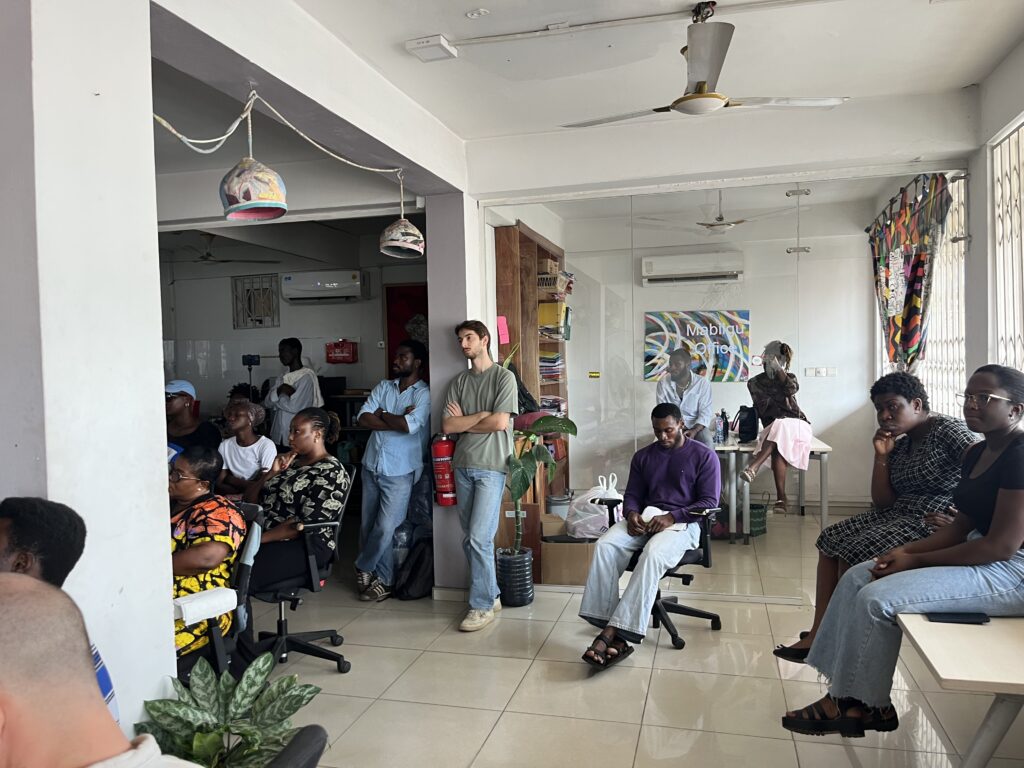In December 2024, the Merton & Everett LLP team undertook a field visit to The OR Foundation in Accra, Ghana. This visit forms part of our commitment to advancing environmental and social justice initiatives across the Global South. The OR Foundation, a partner under the firm’s Akoto Ampaw Social Justice Initiative continues to play a frontline role in tackling Ghana’s mounting textile waste crisis.
From grassroots innovation to high-level policy engagement, our visit offered insight into both the urgent challenges and transformative potential that lie at the intersection of sustainability, social equity, and trade regulation.

A Glimpse Into Innovation: Recycling Waste into Utility and Art
Our visit began with a tour of The OR Foundation’s textile recycling facility, where worn cotton garments from Kantamanto Market, the largest second-hand clothing markets in West Africa—are being repurposed into high-value products. These discarded textiles are shredded, dyed, compressed, and formed into fiberboards used to create furniture, artworks, speakers among others. In a parallel process, garments are also transformed into decorative mats and sustainable fashion pieces, co-designed with local artisans and designers. These efforts show that textile waste, far from being a liability, can become a cornerstone of Ghana’s circular economy.
The Bigger Picture: Presentation by Oliver Barker-Vormawor
Lawyer and policy strategist Oliver Barker-Vormawor presented a sobering yet forward-looking analysis of Ghana’s political and economic terrain. He stressed the absence of coherent national planning to deal with sustainability issues and emphasized the growing burden placed on civil society to drive policy and social change.
A key strategic takeaway was to connect textile waste reform to larger societal concerns such as employment generation and import substitution to create broader public and political traction.

Legal Strategy in Action: HS Codes and Trade Barriers
A major point of discussion was the inadequacy of current international trade classifications. Specifically, HS Code 6309 (used for second-hand clothing) fails to differentiate between waste, sorted garments, and upcycled products. This creates:
- Tariff burdens for upcyclers in Ghana.
- Barriers to proving value addition in global markets.
- Distorted incentives that lump waste exports with sustainable circular trade.
Community Engagement: Empowerment in Action
The Foundation’s community initiatives are building grassroots resilience. Highlights include:
- The Secondhand Solidarity Fund, a one-off emergency support mechanism to assist traders at the Kantamanto market.
- The Transition Education Programme, which equips Kantamanto traders with business skills and seed capital.
- The Kantamanto Key Pair, focused on local waste management improvements.
These efforts not only sustain livelihoods but also empower the community to resist displacement threats and advocate for their own futures.

Looking Forward
The OR Foundation’s work in Ghana exemplifies how grassroots innovation, legal expertise, and international cooperation can catalyze real change. At Merton & Everett LLP, we are proud to stand alongside such efforts; not just as legal advisors, but as active partners in the pursuit of justice and sustainability.
Our field trip has deepened our understanding of the political, economic, and human dynamics shaping Ghana’s textile waste ecosystem. Equipped with this knowledge, we are better prepared to contribute legal solutions that are both strategic and deeply grounded in the realities on the ground.Merton & Everett LLP
